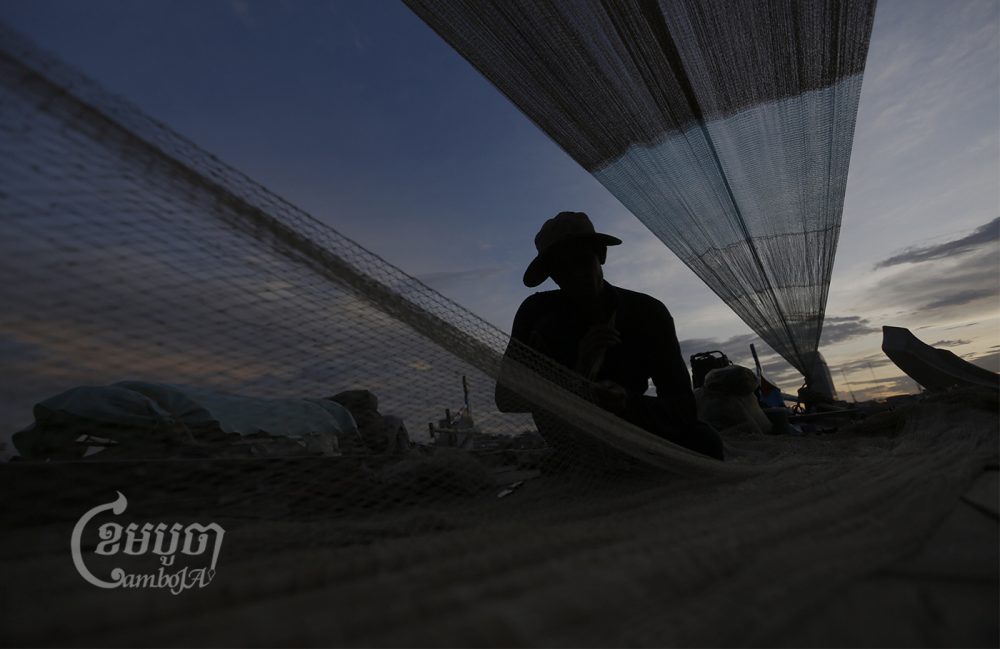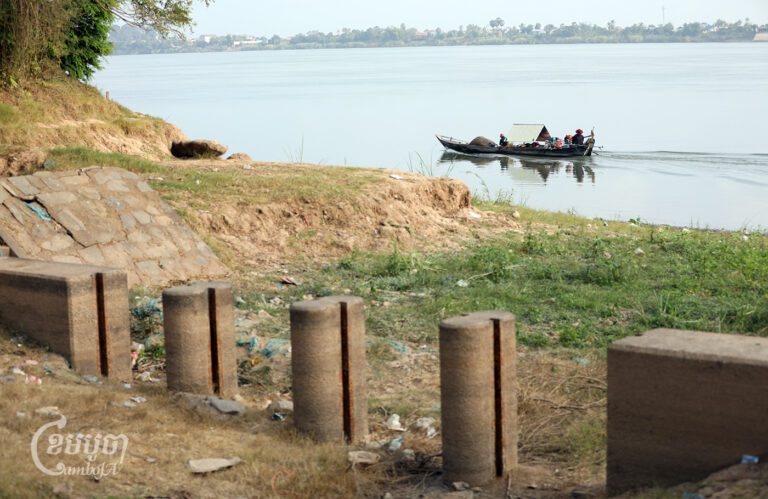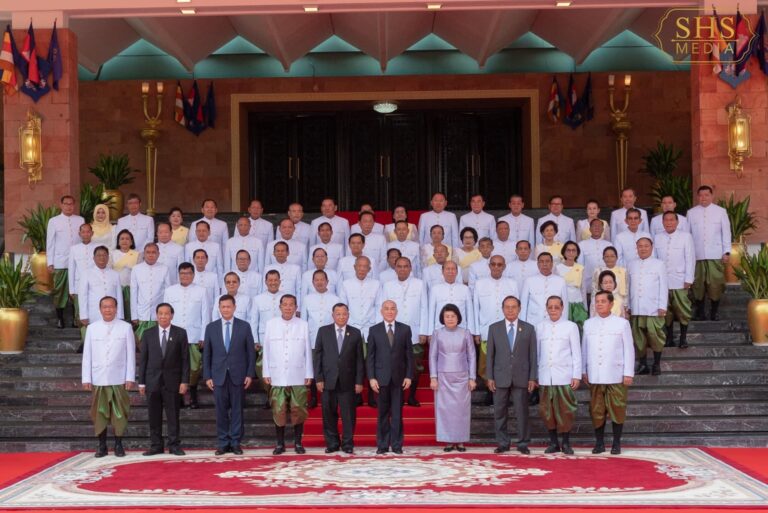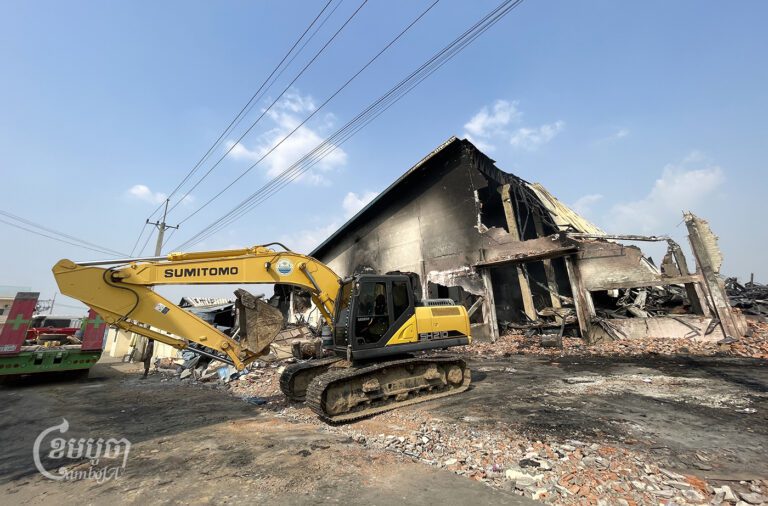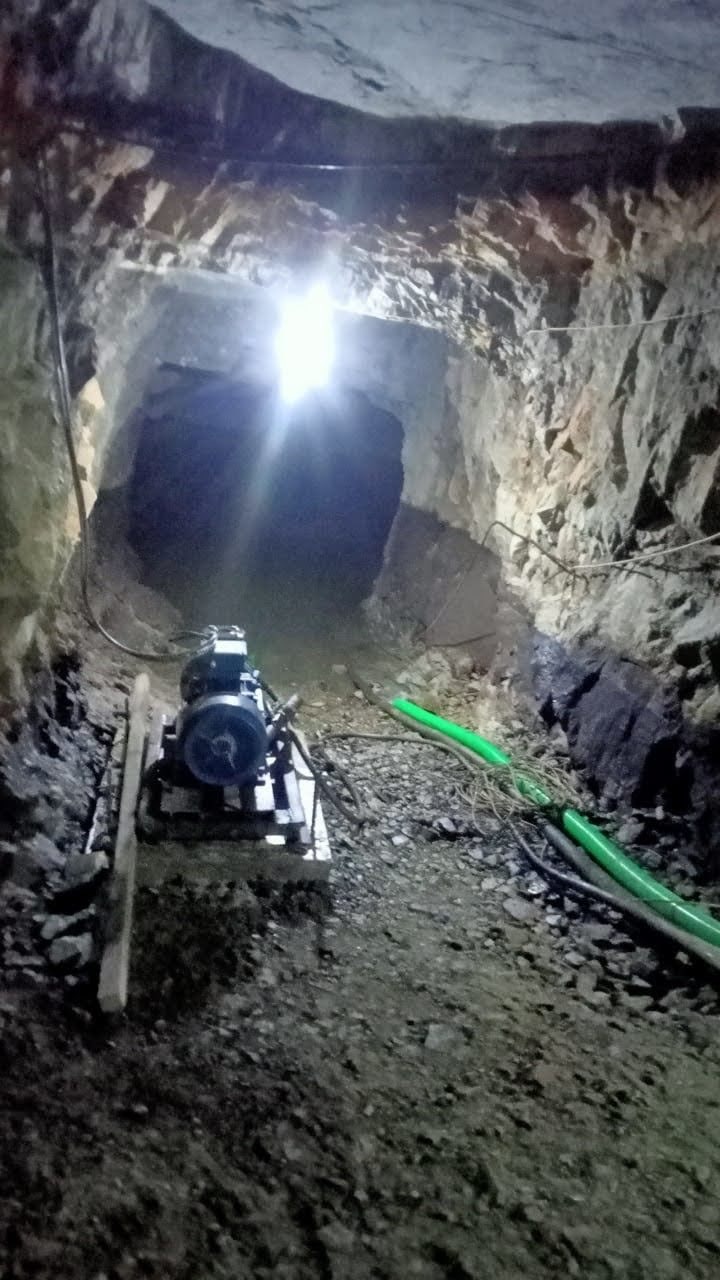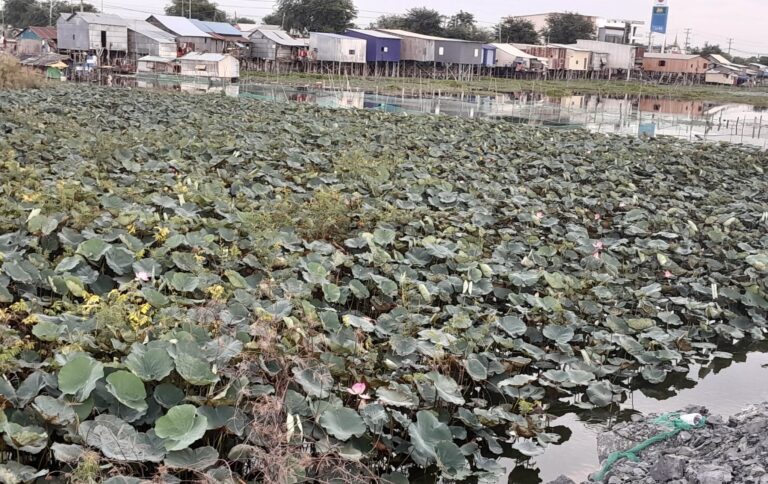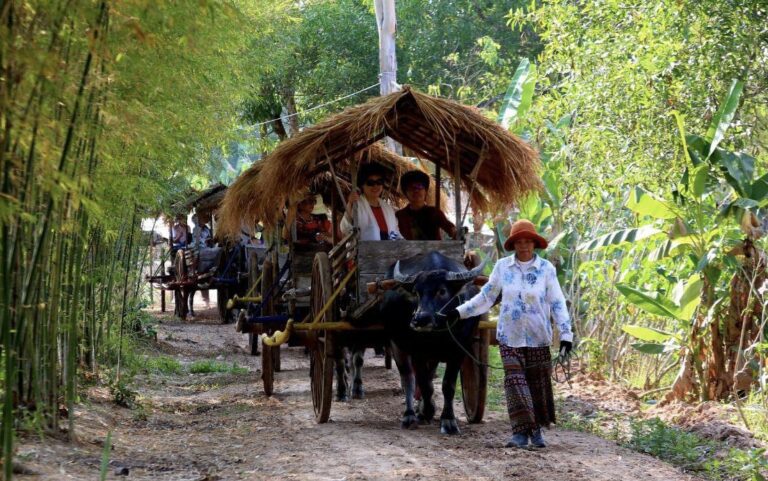Speaking at the closing ceremony of the Ministry of Agriculture’s 2021 annual review meeting on Wednesday, Hun Sen again issued a stern order to crack down on illegal fishing in Tonle Sap Lake using helicopters.
The prime minister’s order came after the president of the Royal Academy of Cambodia, Sok Touch, reported that illegal fishing activities have continued unabated.
“What I am ordering now is a crackdown on the destruction of fisheries in the Tonle Sap Lake. In recent weeks, I have been following it very carefully… the Commander-in-Chief of the Army and the Commander-in-Chief of the Police must find a way to get rid of the rogue traders who have destroyed the fisheries,” Hun Sen said, blaming the authorities for cracking down only on minor offenses so far.
“Why can’t they crack down on big crimes?” he asked. “Are our officials taking bribes from traders? Now, we transfer more power to the provincial level… and you [the provincial governors, the national army chief, and the national police chief] should resign.”
After Hun Sen’s order, the Minister of Agriculture had an urgent meeting with the National Police Commissioner, the Commander-in-Chief of the Royal Cambodian Armed Forces, and the Commander of National Military Police to discuss and put in place immediate and future measures to crack down on illegal fishing in Tonle Sap Lake.
Hun Sen ordered the governors of the provinces around Tonle Sap Lake to take the utmost responsibility as power has been delegated, and said that the relevant ministries need to build up their capacity to address this problem.
Tea Seiha, the governor of Siem Reap province, told CamboJA that the authorities have been working on the issue for months.
“In our province, we have continued to crack down on illegal fishing,” he said. “Now, we need the cooperation of the provinces along Tonle Sap Lake to stop large-scale illegal fishing, and we need enough equipment to serve the mission.”
According to Seiha, most of the illegal fishing activities are carried out at night, and now the province has empowered the provincial military police to beat back at them.
He said that since he became governor, the provincial authorities had cracked down on only two large-scale illegal fishing operations so far.
Illegal fishing in Tonle Sap Lake has been reported for years as policing has been ineffective. The fishing community blames the relevant authorities for corruption, which obstructs legal action against the perpetrators.
Sen Saveth, president of the fishing community in Kampong Chhnang province’s Kampong Tralach Leu, said that illegal fishing has been happening there for a long time. It has reduced the amount of fish they have been able to catch, which has declined over 50 percent over the last few years.
“We rely on rice farming in the dry season and fishing. We are very concerned that the illegal fishing continues because we will have no fish left to eat, while climate change also reduces the fish yield in the lake,” he said. “Since we rely on fishing for our daily lives, when there is no fish, everything is over.”
Long Sochet, president of the Coalition of Cambodia Fishers in Pursat province that works with fish communities around Tonle Sap Lake applauds Hun Sen’s order, but insists action needs to be effective.
“If the measures are not effective, the fisheries resources in Tonle Sap Lake will be depleted in the near future,” he said. “The authorities crack down only on small cases, while big crimes are still going on due to corruption among law enforcement officials.”
“This year, fish stocks for making Prahok have dropped significantly,” Sochet added. “Climate change has caused the water level in Tonle Sap Lake to decrease from year to year, which affects the flow of fish from the Mekong River into the lake.”
Douk Layheang, a villager from Kampong Chhnang province’s Chhnok Trou commune, told CamboJA in December, “Here, ten years ago, we had many fish to catch, but now they are almost gone due to illegal fishing,” she said. “We reported it to the authorities, we asked [them] to crack down on illegal fishing, but they ignored our complaints.”
Layheang blamed the local authorities’ lack of law enforcement due to corruption. “When high-ranking officials came to inspect, they [local authorities] told the illegal fishers to escape. We lost a lot of fish species. If illegal fishing is stopped effectively, the number of fish will increase,” she added. “But even when the fishing season ends, the illegal fishing remains, and no one stops.”
According to a report by the Ministry of Agriculture, there are a total of 516 fishing communities across the country as of 2021, with 332,000 fishers and 668 fisheries conservation areas. In the same year, the total amount of freshwater fish caught was 383,000 tons.
San Chey, executive director of the Affiliated Network for Social Accountability, said that there are complications in the public administration system because some of the officials themselves are involved in illegal fishing.
“They are failing to prevent illegal fishing, so they have to find out whether the perpetrators have a relationship with law enforcement officials,” he said. “They also need to find out if this conflict of interest is the root of the corruption.”
Chey said that due to the ineffectiveness of the public administration system, the Prime Minister’s order constitutes law enforcement.
“So, each relevant institution must start an investigation and, if there is any corruption involved, the Anti-Corruption Unit has to investigate, because high-ranking officials are often used to protect business interests.”
The Tonle Sap Lake borders six provinces. It expands and contracts in a cycle, with water flowing in from the Mekong — via the reversal of the Tonle Sap River — at the start of the rainy season, and out again at the season’s end.
In November, Prime Minister Hun Sen ordered a crackdown on persistent encroachment into Tonle Sap Lake’s flooded forest lands after receiving a report that tens of thousands of hectares had been illegally seized for private use.
Authorities have just ended the crackdown campaign on flooded forest destruction around Tonle Sap Lake, confiscating more than 60,000 hectares of flooded forest land from 14,000 families after the order by Hun Sen last year. The government said that the encroachment of flooded forests is killing Tonle Sap Lake.


